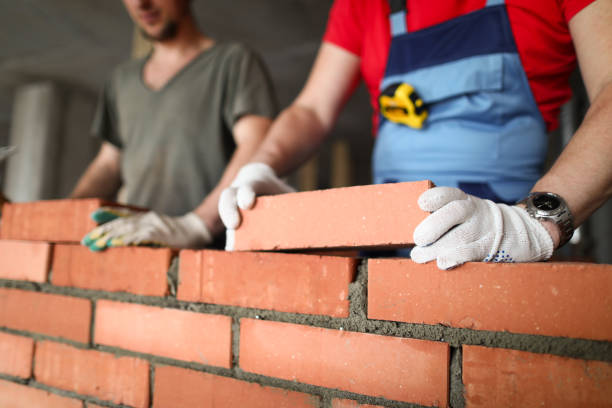Remodeling your home can be an exciting way to enhance your living space and improve its functionality. However, the costs involved can be daunting for many homeowners. But what if we told you that you could potentially secure funding to help with your home remodel? Yes, you heard that right—grant to remodel your home does exist, and they can ease the financial burden of renovations.
In this comprehensive guide, we’ll walk you through everything you need to know about how to get a grant to remodel your home, including the types of grants available, how to apply for them, and tips to increase your chances of success. Let’s get started!
Understanding Home Remodel Grants
When it comes to funding home renovations, there are two primary sources of financial assistance: loans and grants. While loans need to be repaid, grants are essentially “free money” that you don’t have to repay. This is what makes them so attractive for homeowners looking to upgrade their living space.
Grants are typically offered by government agencies, nonprofits, and private foundations. The purpose of these grants can vary, but the common theme is that they are intended to improve living conditions, support sustainable development, or preserve historic properties. According to a report by the National Association of Home Builders, approximately 20% of homeowners explore alternative financing methods, such as grants, for major renovations—making them a crucial resource.
Types of Grants for Home Remodeling
There are several types of grants available for home remodeling. Each caters to different needs, groups of people, and project types. Understanding the distinct categories can guide you to the right funding source for your specific remodeling plan.
Government Grants for Home Improvement
Many federal, state, and local government agencies offer grants to homeowners who need assistance with home repairs or remodeling. These grants are often aimed at improving the quality of housing for low-income families, seniors, and people with disabilities.
- The U.S. Department of Housing and Urban Development (HUD):
- HUD provides various programs like the HOME Investment Partnerships Program and Community Development Block Grants (CDBG), which can be used for home repairs and improvements. These programs have helped thousands of families upgrade their homes.
- For more information, visit the HUD website.
- The Weatherization Assistance Program (WAP):
- Funded by the U.S. Department of Energy, WAP helps low-income households reduce energy costs by providing services such as better insulation, window replacements, and sealing air leaks.
- WAP served over 1.2 million homes in 2020, reducing energy bills significantly. Check details at the Energy.gov website.
- Rural Development Grants:
- Offered by the U.S. Department of Agriculture (USDA), these grants assist low-income homeowners in rural areas, particularly the elderly, with repairs and improvements.
State and Local Government Programs
Beyond federal programs, many state and local governments offer their own grant programs tailored to local needs. These programs may focus on specific areas such as energy efficiency, weatherproofing, or accessibility improvements.
- State Programs: For example, New York offers NYSERDA, a program that provides resources and grants for energy-efficient home upgrades.
- Local Programs: Some city councils may have community improvement grants aimed at neighborhood revitalization.
To find out what’s available in your area, check your local government’s website or visit your local housing authority.
Nonprofit and Community-Based Grants
Numerous nonprofit organizations and community groups focus on providing grants for home renovations, primarily targeting low-income or vulnerable populations.
- Habitat for Humanity:
- This organization builds and repairs homes for families in need. In some communities, Habitat for Humanity provides grants or low-cost loans for home repairs.
- Learn more at Habitat for Humanity.
- Local Community Foundations:
- Many community foundations offer grants for home repairs and neighborhood revitalization. They often have application processes geared towards improving safety and sustainability.
Energy Efficiency Grants
Homeowners interested in eco-friendly upgrades and sustainability can benefit from energy efficiency grants. These grants encourage homeowners to reduce their environmental footprint through various home improvements.
- Energy Star Program:
- Sponsored by the U.S. Environmental Protection Agency (EPA), this program offers rebates and incentives for energy-efficient home upgrades.
- Visit the Energy Star website for details on available rebates.
- State-Specific Programs:
Historical Preservation Grants
If your home is historic or located in a historic district, you may be eligible for grants aimed at preserving the architectural integrity of the property.
- National Trust for Historic Preservation:
- This organization offers various grants and technical assistance for restoring or maintaining historic properties.
- More details can be found at the National Trust for Historic Preservation website.
Grant programs often require adherence to specific preservation standards, so ensure that any work you plan aligns with those guidelines.
How to Find Home Remodeling Grants
Finding the right grants for your home remodeling project requires research, patience, and a bit of strategic planning. Here are some steps and resources to help in your search:
Use Grant Databases
- Grants.gov:
- A comprehensive database of federal grants. You can filter results based on categories like housing, community development, or energy efficiency.
- Access the database at Grants.gov.
- Foundation Center:
- Offers searchable databases of grants from various nonprofit foundations. Use it to find niche funding opportunities.
- Explore options at Foundation Directory Online.
- HUD Exchange:
- Provides resources and information on HUD’s housing and community development programs.
- Visit HUD Exchange for more information.
Consult Your Local Government
Local housing authorities and community development offices often know about grants and low-cost loan programs not listed on national databases. They may also guide you on application processes and eligibility criteria unique to your region.
Work with a Grant Writer
Consider enlisting a professional grant writer’s help. A skilled grant writer can:
- Identify suitable grants for your project.
- Craft a compelling application.
- Ensure that all eligibility requirements are met.
At Grant Writing Academy, we specialize in providing tips, strategies, templates, and tools to increase your success rates in securing funding. Our expert guidance can make the application process smoother and boost your confidence in finding grants.
Additional Resources and Support
a) Expand Your Knowledge
The grant writing field is always evolving. Keep learning and improving your skills to stay competitive.
Recommended Resources:
- Request for Proposal Success: How to Write Proposals That Win: Learn the techniques and strategies to create standout proposals.
- Tech Startup Funding Secrets: Navigating Grants for Maximum Growth: Perfect for those in the tech sector looking to leverage grants for scaling.
- Grant Proposal Guide for Environmental Projects: Tailored for environmental initiatives seeking to secure impactful funding.
- The Ultimate Guide to Federal Grant Applications: Techniques for Success: Master the complexities of federal grants with actionable insights.
Explore More Books Here
b) Invest in Expert Guidance
Want to fast-track your growth and achieve even more success?
Join one of our mentorship programs for tailored advice and support:
Mentorship Programs:
- 3-Month Mentorship: The Foundation Builder: A short-term plan to refine your grant writing skills and win your first (or next) grant.
- 6-Month Mentorship: The Proposal Pro: Dive deeper into strategies, proposal reviews, and funding plans.
- 1-Year Mentorship: The Funding Champion: Build long-term success with comprehensive guidance, unlimited reviews, and exclusive resources.
C) Book a One-on-One Consultation
Sometimes you just need personalized advice to tackle challenges or fine-tune your strategy. Let’s work together to solve your unique grant writing challenges.
Book a Consultation Call Here
Tips for Applying for Home Remodeling Grants
Once you’ve identified possible grants, the next step is to prepare a strong application. Here are some valuable tips:
a) Understand the Eligibility Requirements
Before you invest time into writing an application, thoroughly read the eligibility criteria. Grants may have restrictions related to income, location, home type, or scope of work. Understanding these requirements ensures you don’t waste time on ineligible applications.
b) Have a Clear and Detailed Plan
Your grant application should include a comprehensive plan that covers:
- Scope of Work: What exactly will be remodeled or repaired?
- Budget: Detailed breakdown of costs and how the grant funds will be allocated.
- Impact: How will the renovation improve the living conditions, energy efficiency, or historic preservation of your home?
- Timeline: The projected schedule for the project.
Use simple, clear language to outline your project. Grant reviewers often appreciate straightforward proposals that are easy to understand.
c) Follow the Application Instructions
Each grant has specific submission guidelines:
- Fill out all required forms.
- Attach necessary documentation, such as proof of income, property ownership documents, or previous renovation photos.
- Adhere to page limits, formatting requirements, and deadlines.
Following instructions precisely can significantly affect your application’s success.
d) Seek Matching Funds
Some grants require a match from the applicant. This means you need to provide a portion of the funding yourself, or secure matching funds from another source. Be sure to factor this into your budget and consider partnerships with local community organizations or businesses to help meet matching requirements.
e) Submit Early
Grant deadlines are strict. Submitting your application well before the deadline can:
- Give you extra time to address any unforeseen issues.
- Allow reviewers to consider your application without the rush of last-minute submissions.
According to a study by Grant Professionals Association, applications submitted early have a slightly higher chance of being funded due to fewer submission errors and a more polished final product.
Conclusion:
Securing a grant to remodel your home can be a game-changer, making your renovation dreams more attainable without the financial strain. By understanding the different types of grants, knowing where to find them, and following best practices for application, you greatly increase your chances of success.
If you’re serious about applying for grants and want to enhance your chances of success, consider subscribing to the Grant Writing Academy Newsletter. Our newsletter provides valuable tips, strategies, templates, and tools designed specifically to help you navigate the complex world of grant writing. By subscribing, you’ll join a community of like-minded homeowners and professionals who are taking steps to secure funding for their home improvement projects.
Subscribe now to unlock exclusive content and resources that will empower you to confidently apply for and obtain the grants you need. Click here to join our newsletter and start receiving expert guidance delivered straight to your inbox!
Additional Resources and Data
- HUD Programs: Explore more on home improvement grants at HUD Homeownership Programs.
- Energy Efficiency: Check out the latest stats on energy-efficient home improvements at the U.S. Energy Information Administration.
- Grant Success Rates: According to the National Research Council, grant proposals with clear, detailed plans and strong community impact statements are 25% more likely to be approved.
By taking advantage of available grants and using the right strategies, you can transform your home without breaking the bank. Remember, the first step is simply to start researching and applying. Good luck on your journey to a beautifully remodeled home!





jljl3 https://www.jljl3w.com